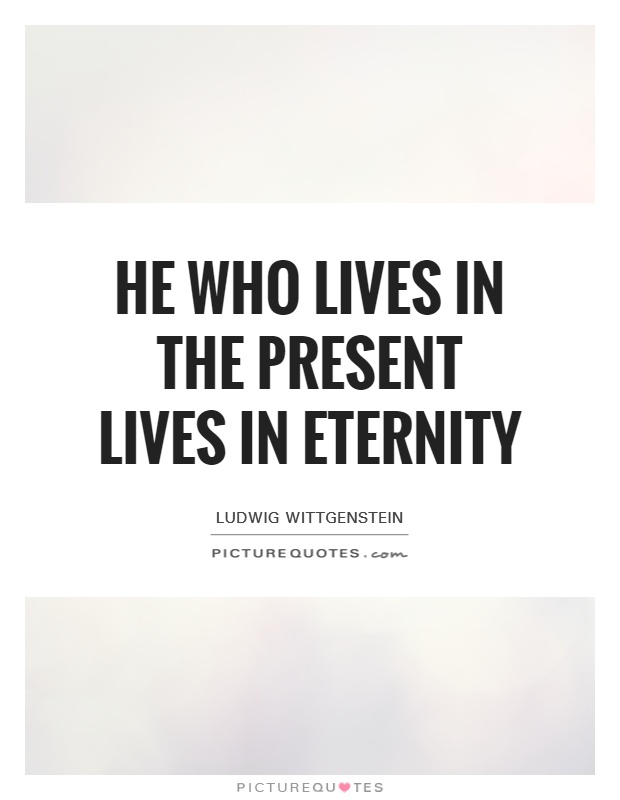He who lives in the present lives in eternity

He who lives in the present lives in eternity
Ludwig Wittgenstein, the renowned Austrian-British philosopher, is often associated with the idea of living in the present moment. His philosophical works, particularly his later writings, emphasize the importance of focusing on the here and now rather than getting caught up in abstract concepts or theoretical constructs. This emphasis on the present moment can be seen as a way of achieving a sense of eternity or timelessness.Wittgenstein's famous quote, "He who lives in the present lives in eternity," encapsulates his belief that true fulfillment and understanding can only be found in the present moment. By being fully present and engaged in the here and now, one can transcend the limitations of time and space and experience a sense of eternity or timelessness. This idea is closely related to the concept of mindfulness, which involves being fully aware of one's thoughts, feelings, and surroundings in the present moment.
For Wittgenstein, living in the present is not just about being mindful or present-focused, but also about letting go of preconceived notions and expectations. By letting go of the past and the future, one can fully immerse themselves in the present moment and experience a sense of freedom and liberation. This idea is reflected in Wittgenstein's philosophical method, which emphasizes the importance of paying attention to the details of everyday life and language rather than getting caught up in abstract theories or metaphysical speculations.












 Friendship Quotes
Friendship Quotes Love Quotes
Love Quotes Life Quotes
Life Quotes Funny Quotes
Funny Quotes Motivational Quotes
Motivational Quotes Inspirational Quotes
Inspirational Quotes